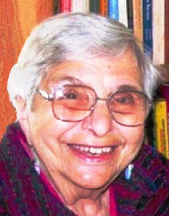Inspirational promoter for children and family welfare
Marianne Pennekamp’s contribution to social work, and especially school social work, has spanned 50 years. She has been influential in moving it through her practice, teaching, supervising, volunteering and writings, from a profession focused on case work to one that utilizes the holistic, “person-in-the-environment” perspective that encourages collaboration with other professionals and organizations to improve the lives of children and families.
Born in Karlsruhe, Germany, Pennekamp received her Bachelor’s degree and MSW at the University of California at Berkeley (UCB), with a focus on mental health, child guidance and child welfare. Additionally, in 1975, she completed her PhD at the UCB School of Social Welfare with emphasis on organizational theory and school social work. Following the awarding of her doctorate, Pennekamp continued as a UCB lecturer while working part time with the Oakland Public Schools. She taught generalist method classes as well as delivering the school social work curriculum.
Nationally, Pennekamp has been influential because of her many articles and her two co-authored books, Collaboration in School Guidance: A Creative Approach to Pupil Personnel Work (1970) and the second edition of Social Work Practice; Toward a Child, Family, School, Community Perspective (2002).
Since retiring over 20 years ago Pennekamp has served as a Criminal Justice and Delinquency Prevention Commissioner in Humboldt County and has been instrumental in the development of a workshop for children of divorce that has become a county mandate.
She served on the Child Death Review Committee whose work resulted in publishing recommendations that addressed the documented, preventable child deaths and resulted in reducing the high rates of child deaths in Humboldt County. Additionally, the children’s mental health system grew from approximately $300,000 in 1985 to six million dollars in 2005 due to Pennekamp’s efforts to improve services to this population.
Reflecting on her many experiences in Pennekamp’s own words, “One thing, inevitably, led to another and merged into a multi-strand tapestry. I have derived, and am still deriving, much pleasure from my work which has been interwoven with my private world, its learning, values and activities.”
Her writings, her speeches and her outspoken advocacy for effective practice have advanced the profession of social work and have resulted in her being a highly recognized authority throughout the country and internationally.
